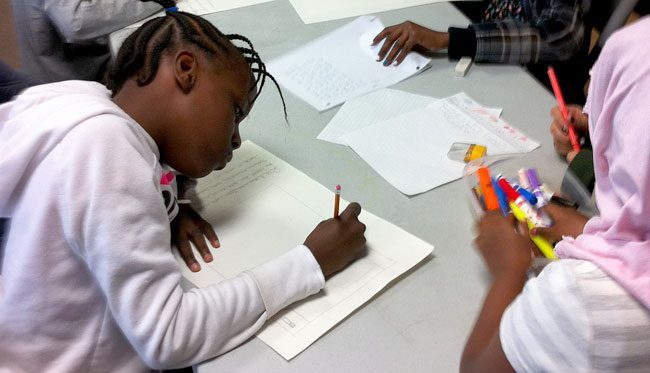Salvation Army Canada works to improve literacy among youth
Amid the poverty of Toronto’s Regent Park Community in Canada, children struggle to do well in school—due, in many cases, to poor literacy.
So The Salvation Army created a Reading Recovery program to help children reading below grade level catch up.
“What we discovered through all the different [Salvation Army] programs, is that [children] were failing school because they did not know how to read,” said Joanne Menard, Reading Recovery program supervisor. “There’s such high need, and many of the kids that find themselves in this program have previously experienced more failure than success.”
According to Joshua Boldt, Reading Recovery program coordinator, the program consists of games and activities that focus on different reading skills so that students can combine these skills and apply them.
“You cannot be a lifelong learner unless you are able to read fluently and comprehend what you are reading,” Boldt said in a video for the program. “The goal of this program is to get to a point where [the children] can be successful in school themselves, and to start feeling some success and pride in their own learning.”
Currently 30 students from grades 1-8 are enrolled in the program, which runs for two hours every night after school and continues through summer break.
In addition to teachers, the program hires mentors from the Focus on Youth program to guide the children through their learning on a one-on-one basis. Focus on Youth is a community-based program that offers employment opportunities for the youth.
“This has been a very rewarding experience,” said Safi Mohamed, a program mentor from Focus on Youth. “I have not only gotten to teach the children of this program, but have also gotten to know them personally; let me just say that they are the funniest group I have ever seen. They are improving every day and I’m just glad to be a part of it all.”
Many parents of the program are beginning to notice the positive effects that the program is having on their children.
“Matthew reads more and reads harder books; he will actually choose to read, which he didn’t do before,” said Barbara, whose son, Matthew, is in the Reading Recovery program.
The children are also noticing their progress, while having fun and making friends along the way.
“This program helped me with my reading and writing skills; now I know bigger words for my vocabulary,” said Kayla, a fifth grader who has been in the program for three years and is now working well above grade level in all literacy areas. “What I like about [it] is getting the chance to learn and play with my friends, and I can even help them here too.”












